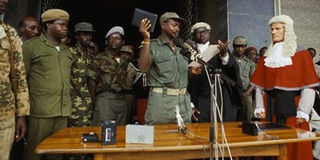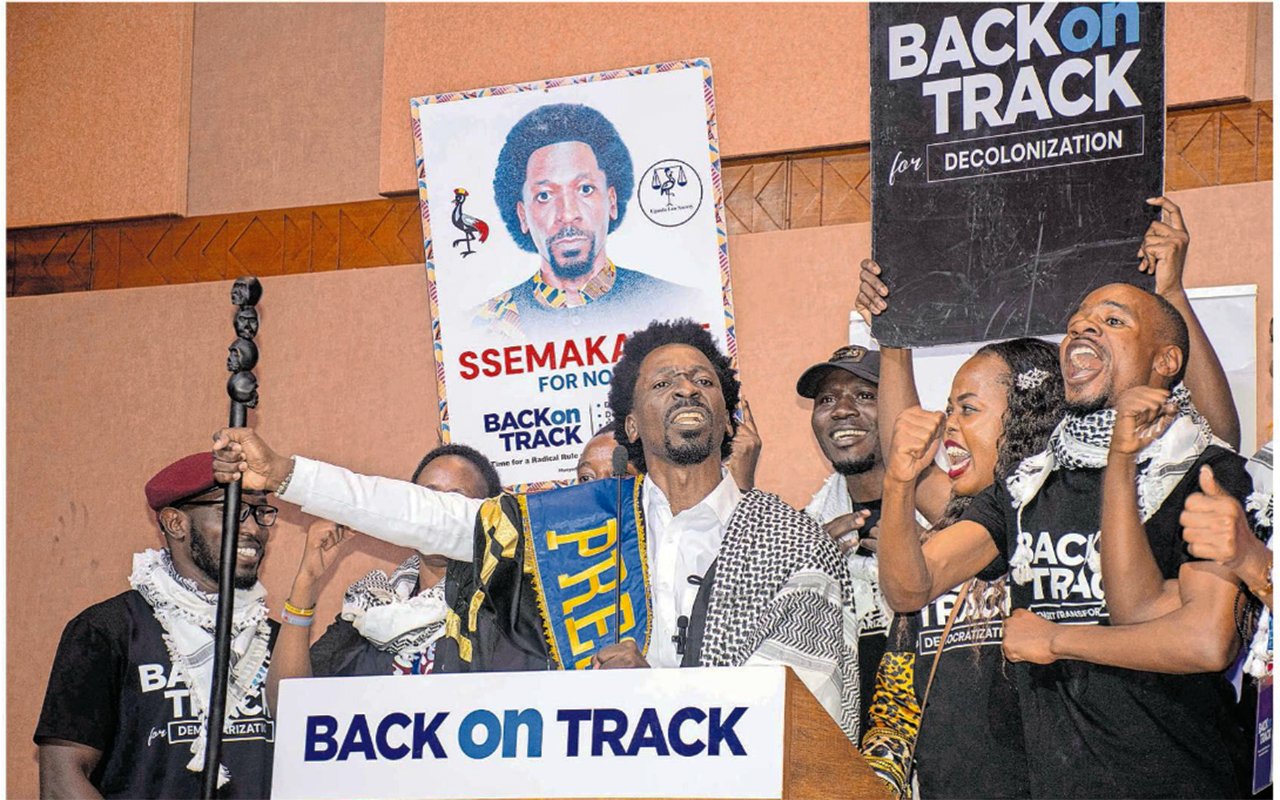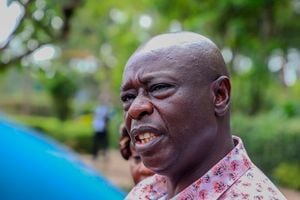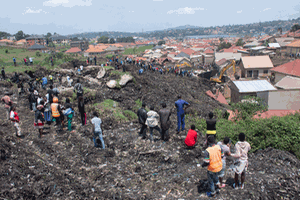Prime
The so-called historicals are an embarrassment to Uganda

Mr Museveni swearing in in 1986. Many of the so-called historicals have failed to tell the President what is good for Uganda that they fought for. FILE PHOTO
Another celebration tomorrow will highlight the start of the bush war that brought President Museveni and the NRM to power. In the context of what was fought and died for, the event can best be treated as a psychological regurgitation of the eventual victory in 1986 rather than a celebration of satisfaction and fulfillment of the ideals that took Museveni and his men to the bush.
Soldiers and civilians who sacrificed their lives for what we are today as a country, may hardly recognise the ideals that set them going at the time. Yet, for the men and women who fought and luckily are still alive, the recollections of the bush war should provide the urgency to ask questions whether after 1986 how much of what they were taught in the bush has been realised.
Why, for example, does President Museveni today faces more resentment from within the party than he did during the bush war? Why is the NRM less dynamic today than it was, say, back in its first five years in power? And can the party’s ‘historicals’ feel a personal responsibility to return the party to the ideals that initially made it a darling of the nation? In essence therefore, Tarehe Sita shouldn’t just be a gathering for politicians to sparkle in their past successes but a point to take stock, especially of what should have been done better.
Over time, President Museveni has tried many times to define who the ‘historicals’ of the Movement really were through his actions. At one point in 2003, when the debate over lifting presidential term limits seemed to split the party and the country, he read out a list of what he considered to be the ‘true’ guys who fought alongside him in the bush. It was an attempt to deliver a psychological blow to those who regarded themselves ‘historicals’. It would then go down in history that there were not part of the birth of the NRA/M and their contribution to his rise to power were peripheral.
However, the question of whether somebody is an NRM ‘historical’ today would carry no value at all except for one consequence; that such a person uses their claim to the genesis of the NRM to ask if they have lived up to what they fought for and bring political and civil leaders to account for their actions. So many historical members of the Movement have fallen out with President Museveni; others have since recoiled and gone back. In 1997, Gen. David Tinyefuza fell out with Museveni after criticising the Presidents oversight over the war in northern Uganda. He was court-martialled before finding his way back.
Since then, others like Col. Kizza Besigye, Richard Kaijuka, Eriya Kategaya, Tom Butime, Col. Amanya Mushega, Gen. Mugisha Muntu, Maj. Gen. Jim Muhwezi, Matthew Rukikaire, Maj. Gen. James Kazini and several others, most still serving in the military or other government posts, have fall out with Museveni but continue to keep their heads low for fear of losing their social, economic or political status.
It is not possible that all these people fell out with Museveni because they were shortsighted in their own view of the man, or the direction to which he was leading them, or that people like Kategaya and Tinyefuza who returned to the fold later discovered their own folly. In 26 years, President Museveni has perfected his art of managing dissent, especially from within his circle which would require greater sacrifice from whoever wants to oppose him.
He has succeeded to coin a legacy of patronage and skillfully surrounded himself with younger cadres whom he uses as scarecrows to denigrate dissenting historicals. Most historicals like Kategaya would shy away from embarrassment by verbal artilleries from Tamale Mirundi (State House spokesman), for example, or a military General like Tinyefuza would turn spineless at the sight of Jennifer Musisi (KCCA boss).
Dr Kizza Besigye has succeeded to stand out from the rest of the dissenters because he is to a good measure the default to Museveni. He has endured all the torture and abuse hauled at him yet he looks unscathed. For failing to stand up to President Museveni, most of these so called historicals are an embarrassment to the country.
They put up a feeble resistance to the lifting of presidential term limits, have continuously failed to call for democratic and electoral reforms, some of them are in the thick of corruption scandals, including land grabbing, while other, of all things that they could do, are praise-singers of Museveni. There are no better Ugandans to tell Museveni what he ought to do than his peers who understand the man’s soul. Their silence is a conspiracy against Ugandans whom they claim to have liberated.




